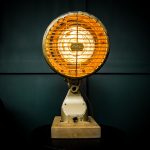Chickens have a natural egg-laying cycle that is influenced by seasonal changes in daylight and temperature. Their reproductive systems are most active during spring and summer when days are longer and warmer. As autumn approaches and daylight hours decrease, chickens typically reduce or cease egg production.
This biological response allows them to conserve energy and resources during colder months. The decrease in egg production during winter is a normal part of a chicken’s annual cycle. It is primarily triggered by the reduction in daylight hours, known as photoperiod, and is further affected by dropping temperatures.
This natural process is an evolutionary adaptation that helps chickens survive harsh winter conditions by redirecting energy from egg production to maintaining body heat and essential bodily functions. Chicken owners should be aware of this natural cycle to better manage their flock’s needs throughout the year. During winter, chickens may require additional care, such as supplemental lighting to maintain egg production if desired, or simply allowing them to follow their natural rhythms.
Understanding these seasonal patterns enables owners to provide appropriate care and set realistic expectations for egg production throughout the year. It’s important to note that while modern breeding has somewhat altered these natural cycles in some chicken breeds, many still exhibit this seasonal variation in egg-laying. Factors such as breed, age, diet, and overall health can also influence a chicken’s egg-laying patterns, in addition to seasonal changes.
Table of Contents
- 1 Creating a comfortable and well-insulated coop for winter
- 2 Providing the right nutrition and supplements for winter egg production
- 3 Ensuring adequate light and warmth in the coop during the winter months
- 4 Managing stress and boredom in chickens during the winter
- 5 Implementing a consistent and regular egg collection routine
- 6 Monitoring and adjusting for individual chicken needs and health issues
- 7 FAQs
- 7.1 What factors can affect a chicken’s egg production in the winter?
- 7.2 How can I increase daylight for my chickens during the winter?
- 7.3 What should I feed my chickens to help them keep laying eggs in the winter?
- 7.4 How can I keep my chicken coop warm in the winter?
- 7.5 Are there any specific breeds of chickens that are better at laying eggs in the winter?
Key Takeaways
- Chickens naturally lay fewer eggs in the winter due to decreased daylight
- Insulate the coop with straw, provide draft-free ventilation, and use heated waterers to keep chickens comfortable in winter
- Supplement chicken feed with calcium and protein to support egg production in winter
- Use artificial lighting and heating sources to maintain warmth and light in the coop during winter
- Provide entertainment such as hanging treats and toys to reduce stress and boredom for chickens in winter
- Collect eggs daily to prevent freezing and ensure freshness
- Monitor individual chickens for signs of stress, illness, or injury and make necessary adjustments to their care
Creating a comfortable and well-insulated coop for winter
Insulation and Bedding
Insulating the coop can help to retain heat and keep out drafts, providing a more comfortable environment for your chickens. Additionally, providing plenty of bedding, such as straw or wood shavings, can help to keep the coop warm and dry.
Ventilation is Key
It’s also important to ensure that the coop is well-ventilated to prevent moisture buildup, which can lead to respiratory issues in chickens. Proper ventilation will help to maintain good air quality and prevent condensation from forming inside the coop. This can be achieved by installing vents or windows that can be opened and closed as needed.
Supporting Egg Production
By creating a comfortable and well-insulated coop for your chickens, you can help to support their egg production during the winter months. Creating a comfortable and well-insulated coop for your chickens is essential for supporting egg production during the winter months.
Providing the right nutrition and supplements for winter egg production
In order to support egg production during the winter months, it’s important to provide your chickens with the right nutrition and supplements. This can help to ensure that they have the energy and nutrients they need to continue laying eggs even in colder temperatures. A balanced diet that includes high-quality layer feed, as well as access to fresh water and grit, is essential for supporting egg production in chickens.
Additionally, providing supplemental light can help to stimulate egg production during the shorter days of winter. Supplements such as calcium can also be beneficial for supporting egg production in chickens. Calcium is essential for strong eggshells, so providing oyster shell or crushed eggshells can help to ensure that your chickens have an adequate supply of this important mineral.
It’s important to monitor your chickens’ diet and make any necessary adjustments to ensure that they are receiving the right nutrition and supplements for winter egg production. In order to support egg production during the winter months, it’s important to provide your chickens with the right nutrition and supplements. A balanced diet that includes high-quality layer feed, as well as access to fresh water and grit, is essential for supporting egg production in chickens.
Additionally, providing supplemental light can help to stimulate egg production during the shorter days of winter. Supplements such as calcium can also be beneficial for supporting egg production in chickens. Calcium is essential for strong eggshells, so providing oyster shell or crushed eggshells can help to ensure that your chickens have an adequate supply of this important mineral.
It’s important to monitor your chickens’ diet and make any necessary adjustments to ensure that they are receiving the right nutrition and supplements for winter egg production.
Ensuring adequate light and warmth in the coop during the winter months
During the winter months, it’s important to ensure that your chickens have adequate light and warmth in their coop. This can help to stimulate egg production and keep your chickens comfortable during colder temperatures. Providing supplemental light in the coop can help to mimic longer daylight hours, which can encourage your chickens to continue laying eggs even in the shorter days of winter.
This can be achieved by installing a timer on a light source inside the coop, which can be set to provide additional hours of light each day. In addition to supplemental light, it’s important to provide warmth in the coop during the winter months. This can be achieved by using heat lamps or heated pads, which can help to keep the coop at a comfortable temperature for your chickens.
It’s important to monitor the temperature inside the coop and make any necessary adjustments to ensure that your chickens are warm and comfortable. By ensuring adequate light and warmth in the coop during the winter months, you can help to support egg production and keep your chickens healthy and happy. During the winter months, it’s important to ensure that your chickens have adequate light and warmth in their coop.
Providing supplemental light in the coop can help to mimic longer daylight hours, which can encourage your chickens to continue laying eggs even in the shorter days of winter. This can be achieved by installing a timer on a light source inside the coop, which can be set to provide additional hours of light each day. In addition to supplemental light, it’s important to provide warmth in the coop during the winter months.
This can be achieved by using heat lamps or heated pads, which can help to keep the coop at a comfortable temperature for your chickens. By ensuring adequate light and warmth in the coop during the winter months, you can help to support egg production and keep your chickens healthy and happy.
Managing stress and boredom in chickens during the winter
During the winter months, it’s important to manage stress and boredom in your chickens in order to support their overall health and well-being. Chickens can become stressed or bored when they are confined to their coop due to cold weather or snow. This can lead to behavioral issues or decreased egg production.
Providing enrichment activities such as hanging treats or toys in the coop can help to keep your chickens entertained and engaged during the winter months. Additionally, allowing your chickens access to an outdoor run or protected area on milder days can help to alleviate boredom and provide them with opportunities for exercise and exploration. It’s also important to monitor your chickens for signs of stress or boredom, such as feather picking or aggressive behavior, and make any necessary adjustments to their environment or routine.
By managing stress and boredom in your chickens during the winter, you can help to support their overall health and well-being. During the winter months, it’s important to manage stress and boredom in your chickens in order to support their overall health and well-being. Chickens can become stressed or bored when they are confined to their coop due to cold weather or snow.
This can lead to behavioral issues or decreased egg production. Providing enrichment activities such as hanging treats or toys in the coop can help to keep your chickens entertained and engaged during the winter months. Additionally, allowing your chickens access to an outdoor run or protected area on milder days can help to alleviate boredom and provide them with opportunities for exercise and exploration.
By managing stress and boredom in your chickens during the winter, you can help to support their overall health and well-being.
Implementing a consistent and regular egg collection routine

Establish a Consistent Egg Collection Routine
To ensure a steady supply of eggs during the winter months, it’s crucial to implement a consistent and regular egg collection routine. This helps to prevent eggs from freezing or cracking in cold temperatures by collecting them promptly. It’s essential to check for eggs multiple times per day, especially during colder weather, to collect them before they become damaged.
Provide a Comfortable Laying Environment
Providing nesting boxes with plenty of clean bedding can encourage your hens to lay their eggs in a safe and comfortable environment. This helps to promote egg production and reduces the risk of eggs becoming damaged.
Monitor for Broodiness
It’s also important to monitor your hens for signs of broodiness, as broody hens may become protective of their eggs and prevent other hens from laying in the nesting boxes. By keeping an eye out for broodiness, you can take steps to prevent it and ensure a steady supply of eggs.
Benefits of a Consistent Egg Collection Routine
By implementing a consistent and regular egg collection routine, you can help to support egg production during the winter months. This ensures a steady supply of fresh eggs and helps to keep your hens happy and healthy.
Monitoring and adjusting for individual chicken needs and health issues
During the winter months, it’s important to monitor your chickens for individual needs and health issues in order to provide them with appropriate care and support. Some chickens may be more sensitive to cold temperatures or may have health issues that require special attention during the winter months. It’s important to monitor your chickens for signs of illness or distress, such as lethargy or decreased appetite, and seek veterinary care if necessary.
Additionally, older hens or those with health issues may require special accommodations or care during the winter months. This may include providing additional warmth or isolation from other chickens in order to ensure their comfort and well-being. By monitoring and adjusting for individual chicken needs and health issues, you can provide your chickens with the care and support they need during the winter months.
During the winter months, it’s important to monitor your chickens for individual needs and health issues in order to provide them with appropriate care and support. Some chickens may be more sensitive to cold temperatures or may have health issues that require special attention during the winter months. It’s important to monitor your chickens for signs of illness or distress, such as lethargy or decreased appetite, and seek veterinary care if necessary.
Additionally, older hens or those with health issues may require special accommodations or care during the winter months. By monitoring and adjusting for individual chicken needs and health issues, you can provide your chickens with the care and support they need during the winter months. In conclusion, understanding the natural egg-laying cycle of chickens is essential for providing them with appropriate care and support during the winter months when their egg production may decrease or stop altogether.
Creating a comfortable and well-insulated coop, providing the right nutrition and supplements, ensuring adequate light and warmth, managing stress and boredom, implementing a consistent egg collection routine, and monitoring individual chicken needs are all important aspects of supporting egg production during the winter months. By taking these factors into consideration and providing appropriate care for your chickens, you can help them stay healthy and comfortable throughout the colder seasons.
If you’re looking for tips on how to keep your chickens laying eggs through the winter, you might also be interested in learning about the best flooring for your chicken coop. Check out this article on choosing the right floor for your chicken coop to ensure your hens stay healthy and productive during the colder months.
FAQs
What factors can affect a chicken’s egg production in the winter?
Factors that can affect a chicken’s egg production in the winter include decreased daylight hours, colder temperatures, and changes in diet.
How can I increase daylight for my chickens during the winter?
You can increase daylight for your chickens during the winter by using artificial lighting in the coop to simulate longer daylight hours.
What should I feed my chickens to help them keep laying eggs in the winter?
To help chickens keep laying eggs in the winter, you can feed them a high-quality layer feed and provide additional protein-rich treats such as mealworms or black soldier fly larvae.
How can I keep my chicken coop warm in the winter?
You can keep your chicken coop warm in the winter by insulating the walls, using a heat lamp or heated waterer, and ensuring good ventilation to prevent moisture buildup.
Are there any specific breeds of chickens that are better at laying eggs in the winter?
Some breeds of chickens, such as the Rhode Island Red, Australorp, and Leghorn, are known for their ability to lay eggs consistently throughout the winter months.
Meet Walter, the feathered-friend fanatic of Florida! Nestled in the sunshine state, Walter struts through life with his feathered companions, clucking his way to happiness. With a coop that’s fancier than a five-star hotel, he’s the Don Juan of the chicken world. When he’s not teaching his hens to do the cha-cha, you’ll find him in a heated debate with his prized rooster, Sir Clucks-a-Lot. Walter’s poultry passion is no yolk; he’s the sunny-side-up guy you never knew you needed in your flock of friends!







